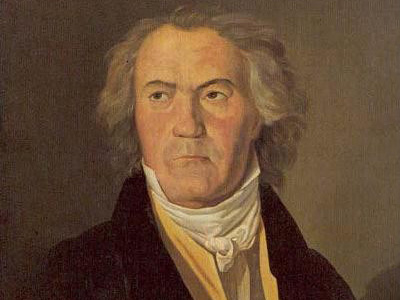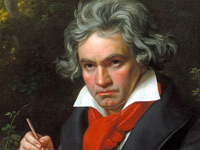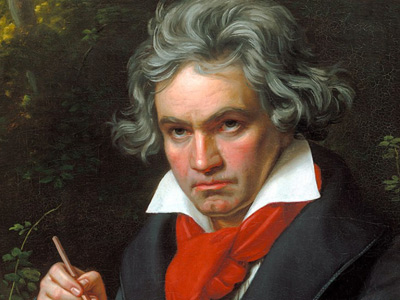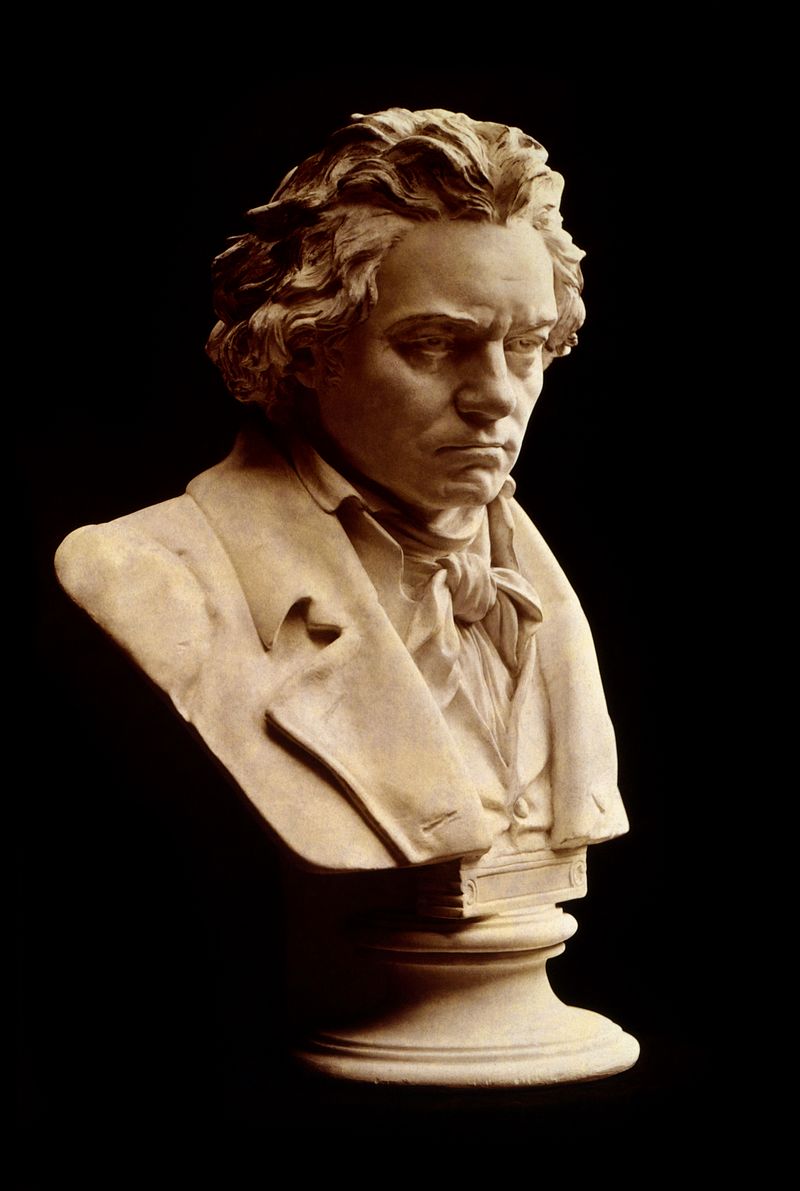Ludwig van Beethoven (1770-1827)

Establishing his Career in Vienna
With the Elector's help, Beethoven left Bonn for Vienna in November 1792, amid rumours of war spilling out of France In the history of France, French First Republic, sometimes referred to in historiography as Revolutionary France, and officially the French Republic, was founded on 21 September 1792 during the French Revolution. The First Republic lasted until the declaration of the First Empire on 18 May 1804 under Napoléon Bonaparte, although the form of the government changed several times.; he learned shortly after his arrival that his father had died. Mozart had also recently died. Count Waldstein, in his farewell note to Beethoven, wrote: "Through uninterrupted diligence you will receive Mozart's spirit through Haydn's hands." Over the next few years, Beethoven responded to the widespread feeling that he was a successor to the recently deceased Mozart by studying that master's work and writing works with a distinctly Mozartean flavour.
In the history of France, French First Republic, sometimes referred to in historiography as Revolutionary France, and officially the French Republic, was founded on 21 September 1792 during the French Revolution. The First Republic lasted until the declaration of the First Empire on 18 May 1804 under Napoléon Bonaparte, although the form of the government changed several times.; he learned shortly after his arrival that his father had died. Mozart had also recently died. Count Waldstein, in his farewell note to Beethoven, wrote: "Through uninterrupted diligence you will receive Mozart's spirit through Haydn's hands." Over the next few years, Beethoven responded to the widespread feeling that he was a successor to the recently deceased Mozart by studying that master's work and writing works with a distinctly Mozartean flavour.
Beethoven did not immediately set out to establish himself as a composer, but rather devoted himself to study and performance. Working under Haydn's direction, he sought to master counterpoint. He also studied violin under Ignaz Schuppanzigh. Early in this period, he also began receiving occasional instruction from Antonio Salieri, primarily in Italian vocal composition style; this relationship persisted until at least 1802, and possibly 1809. With Haydn's departure for England The Kingdom of Great Britain was a sovereign country in Western Europe from 1 May 1707 to the end of 31 December 1800. The state was created by the 1706 Treaty of Union and ratified by the Acts of Union 1707, which united the kingdoms of England (which included Wales) and Scotland to form a single kingdom encompassing the whole island of Great Britain and its outlying islands, with the exception of the Isle of Man and the Channel Islands. in 1794, Beethoven was expected by the Elector to return home. He chose instead to remain in Vienna, continuing his instruction in counterpoint with Johann Albrechtsberger and other teachers. Although his stipend from the Elector expired, a number of Viennese noblemen had already recognized his ability and offered him financial support, among them Prince Joseph Franz Lobkowitz, Prince Karl Lichnowsky, and Baron Gottfried van Swieten.
The Kingdom of Great Britain was a sovereign country in Western Europe from 1 May 1707 to the end of 31 December 1800. The state was created by the 1706 Treaty of Union and ratified by the Acts of Union 1707, which united the kingdoms of England (which included Wales) and Scotland to form a single kingdom encompassing the whole island of Great Britain and its outlying islands, with the exception of the Isle of Man and the Channel Islands. in 1794, Beethoven was expected by the Elector to return home. He chose instead to remain in Vienna, continuing his instruction in counterpoint with Johann Albrechtsberger and other teachers. Although his stipend from the Elector expired, a number of Viennese noblemen had already recognized his ability and offered him financial support, among them Prince Joseph Franz Lobkowitz, Prince Karl Lichnowsky, and Baron Gottfried van Swieten.
By 1793, Beethoven had established a reputation as an improviser in the salons of the nobility, often playing the preludes and fugues of J. S. Bach's Well-Tempered Clavier. His friend Nikolaus Simrock had begun publishing his compositions; the first are believed to be a set of variations (WoO 66). By 1793, he had established a reputation in Vienna as a piano virtuoso, but he apparently withheld works from publication so that their publication in 1795 would have greater impact. Beethoven's first public performance in Vienna was in March 1795, a concert in which he first performed one of his piano concertos. It is uncertain whether this was the First or Second. Documentary evidence is unclear, and both concertos were in a similar state of near-completion (neither was completed or published for several years). Shortly after this performance, he arranged for the publication of the first of his compositions to which he assigned an opus number, the three piano trios, Opus 1. These works were dedicated to his patron Prince Lichnowsky, and were a financial success; Beethoven's profits were nearly sufficient to cover his living expenses for a year.
HISTORY

RESOURCES
This article uses material from the Wikipedia article "Ludwig van Beethoven (1770-1827)", which is released under the Creative Commons Attribution-Share-Alike License 3.0.
© Stories Preschool. All Rights Reserved.










